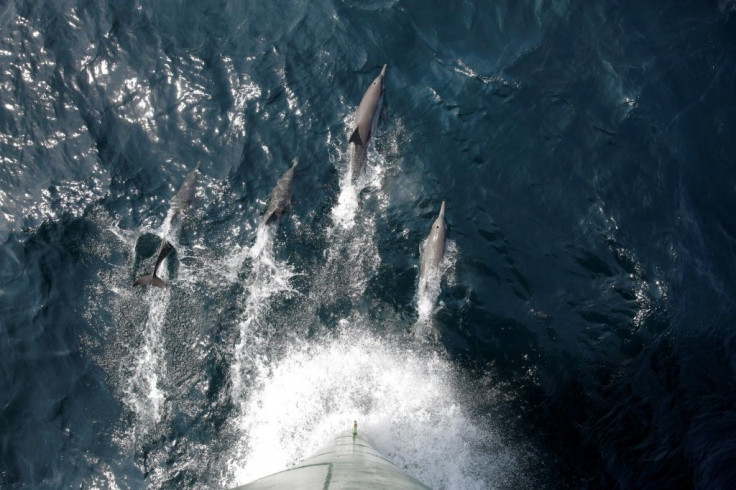Human Carbon Emissions Outpace Past Emissions That Acidified Oceans, Study Finds
KEY POINTS
- During the PETM, oceans became acidic causing a mass die-off of marine animals
- Researchers found that carbon emissions then were likely from volcanic eruptions
- They also found that humans are introducing carbon much faster than past events did
- The findings have implications for what we could be facing in the future
A new study found that humans are releasing carbon emissions at a significantly faster rate than the past event that led to a major marine life die-off.
As the name suggests, the Paleocene-Eocene Thermal Maximum (PETM) some 55 million years ago was a period of maximum temperature that lasted for about 100,000 years. The period was characterized by the highest global temperatures during the Cenozoic Era, which covers 65 million years ago until the present, and it is considered to be the closest natural analog to modern human carbon dioxide emissions.
A news release from Columbia University explains that the world was already warmer than it is today even before PETM but, rising carbon emissions during PETM led to a further 5 to 8 degrees Celsius of warming. The carbon emissions at the time were from natural sources, for instance volcanic activity, widespread fires or a comet collision, but the exact cause and the amount of carbon released had been unclear.
And when the oceans then absorbed the massive carbon emissions, they turned acidic and deadly to many marine species.
In a new study published in Proceedings of the National Academy of Sciences, a pair of researchers studied the ocean conditions from the PETM in hopes of shedding light into the mysteries that actually have implications for the world we live in today.
For the study, the researchers studied the shells of marine organisms called foraminifera, specifically looking at the shells' boron absorption and comparing them with the boron in fossilized foraminifera from the PETM.
Based on their analysis, the researchers found that volcanism was likely the source of carbon emissions in the PETM. But what's concerning is the researchers' findings that the carbon emissions at the time were released at a much slower rate than the rate of carbon humans are releasing today. In fact, the researchers estimate that humans are releasing carbon five to eight times faster.
"Our reconstruction invokes volcanic emissions as a driver of PETM warming and suggests that the buffering capacity of the ocean increased, which helped to remove carbon dioxide from the atmosphere," the researchers wrote. "However, our estimates confirm that modern CO2 release is occurring much faster than PETM carbon release."
In other words, humans are emitting carbon dioxide at much faster levels than the natural volcanic events that led to the acidification of oceans and mass extinction of marine animals millions of years ago.

"If you add carbon slowly, living things can adapt. If you do it very fast, that's a really big problem," study co-author Bärbel Hönisch of Columbia University's Lamont-Doherty Earth Observatory said in the university news release. "The past saw some really dire consequences, and that does not bode well for the future."
According to the Smithsonian, about 30% of the carbon dioxide in the atmosphere gets absorbed by the oceans. With the high levels of carbon dioxide now in the atmosphere, this absorption then causes chemistry changes that make the water more acidic, affecting marine animals' growth, reproduction and chemical communication and, even making it harder for shells to grow.
Even fish may experience a condition called acidosis wherein the pH levels in their blood changes, affecting them in various ways from expending more energy to remove the acid, to affecting their minds. For instance, clownfish in more acidic waters do not flee from predators, stray far from home and have trouble finding their way back.
Given the amount of carbon emissions that humans have been pumping and are continuously pumping into the atmosphere, there is concern that similar major die-offs such as the one experienced during the PETM could be experienced in the future.
"We're outpacing the past, and the consequences are probably going to be very serious," Hönisch said in the news release.
© Copyright IBTimes 2024. All rights reserved.






















